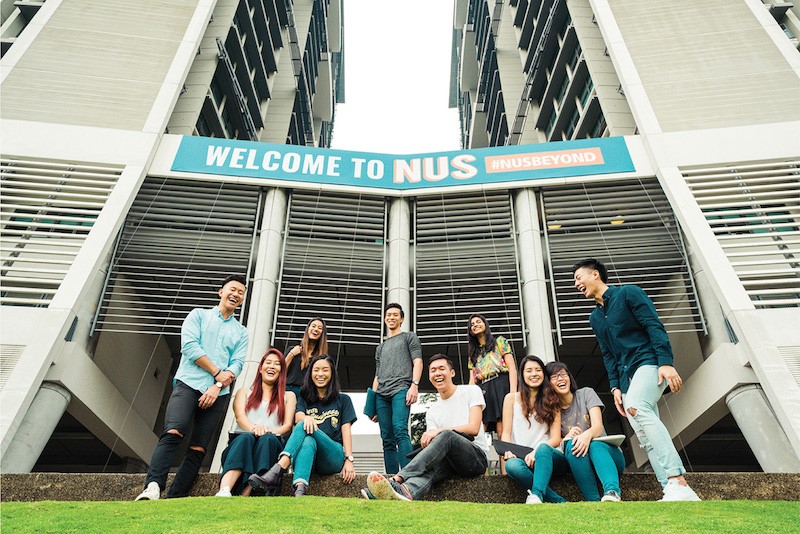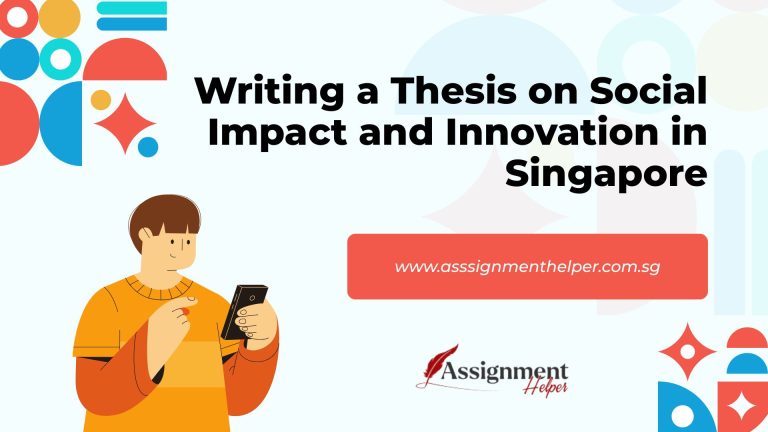9 Private Singaporean Universities That You Should Not Miss

With at least 30 higher education institutes spread all over the country, Singapore has a mix of independent (public) and private universities.
For years, the public ones have been best known for offering reliable education, but with time, the private institutes have also quietly built a strong reputation of their own. Perhaps this is why over 20,000 foreign students have enrolled in these Singaporean campuses recently.
So, whether you are into business, tech, design, or hospitality, these schools offer programs that offer something to everyone. They are also easy to connect with and built for the real world. Now, let’s take a deeper look at the 9 private universities in Singapore.
Ranking 9 Best Private Universities of Singapore
With so many institutions to choose from, finding the right university can often feel stressful. So, instead of procrastinating like you do with your research projects and then rushing for last-minute online dissertation help, make sure to know exactly what you are looking for.
Additionally, knowing the target specifications makes aiming and decision-making even more effortless. Hence, you will instantly know when you come across the right one. Below is a narrowed-down list of private universities that will help you make a confident choice.
- Note: The ranks are not just given based on reputation, but on what truly matters: quality teaching, industry relevance, global recognition, and student support.
Take A Look at the Nine Names We Ranked
- National University of Singapore (NUS)
- Singapore Management University (SMU)
- Singapore University of Technology and Design (SUTD)
- Singapore MIT Alliance for Research and Technology
- S P Jain School of Global Management
- Singapore Institute of Management (SIM)
- TMC Academy
- Kaplan Higher Education Academy
- PSB Academy
Now, let’s break down the reason why each institute was given the rank it has. Pay close attention so that you can make an informed decision.
| University Name | Quality Teaching | Industry Relevance | Global Recognition | Student Support |
| National University of Singapore (NUS) | Top-tier academics | Deep corporate ties | Globally recognised as elite | Full-spectrum support |
| Singapore Management University (SMU) | Case-based excellence | Finance and business focus | Regional reputation | Personalised mentoring |
| Singapore University of Technology & Design (SUTD) | MIT-style innovation | Startup collaborations | Rising global profile | Tight-knit community |
| Singapore MIT Alliance for Research & Technology (SMART) | Research-driven | Government partnerships | International affiliations | Graduate-focused services |
| S P Jain School of Global Management | Globalized curriculum | Market-ready programs | Tri-city exposure | Career coaching |
| Singapore Institute of Management (SIM) | Applied learning | Industry-aligned degrees | International affiliations | Career development |
| TMC Academy | Flexible for students | Professional relevance | Regional recognition | Accessible resources |
| Kaplan Higher Education Academy | Career-focused | Employer-driven | Overseas affiliations | Flexible scheduling |
| PSB Academy | Practical Instructions | Vocational emphasis | Limited global reach | Supportive but basic |
Important Considerations Before You Lock the Decision
Students don’t even pick a do my assignment service without proper research of prices and testimonials. How can anyone choose a university in a hurry? It is a four-year commitment. Thus, inquiry, reviews, and relevance matter even more when your future is at stake. Here are a few things that every student should consider before finalising an institute for higher education.
- Program Focus
The first thing is that not all universities offer everything. Private universities in Singapore often specialize in areas like business, Information Technology, or hospitality. Therefore, hold your horses, and ask yourself: Is this program really what I want to study?
This self-reflecting question will help you in not just going with what sounds impressive. Moreover, it is also important because it can save you from switching courses later, which costs time and money.
- Partnerships
The second most important thing to consider is that many private institutes have tie-ups with international ones. As a result, they allow you to study part of your degree abroad, get a dual qualification, or even learn from global faculty.
Another benefit of these partnerships is that they can open doors to international careers and networks. Hence, if you dream of working overseas or want a globally recognized degree, check which universities in Singapore are offering that kind of exposure.
- Accreditation and Recognition
It is worth paying attention that sometimes, the students are just getting charmed by the fancy course titles. A complex name doesn’t always mean something very important. Therefore, students must always check if the program is accredited by relevant professional bodies.
This is also a necessary routine if you are entering fields like accounting, psychology, or engineering because recognition brings value to your degree. Moreover, it makes it easier for you to apply for jobs or further studies. Some experts also suggest that without it, you might just end up with a qualification that employers or other universities don’t accept.
- Financial Burden
Last but not least, the tuition fees vary widely, and you should know that living in Singapore isn’t cheap at all. This is why you need the support of the few private universities that offer scholarships or payment plans, while others don’t.
However, before committing, you need to calculate the full cost. This includes everything from tuition, accommodation, and food to transport. You can even explore funding options if you feel a need for one. Simply put, don’t just look at the price tag. Instead, think about the return on investment. This way, a slightly pricier program with better career outcomes might just be worth it.
Digging Further Deep into the Finances
There are a bunch of expenses that you will have to cater to once you decide to get enrolled in a Singaporean program. This starts right from the application fee, followed by tuition, housing, transport, and daily living costs. Apart from these fixed costs, there are also plenty of recurring and variable expenses that might be too much to handle for self-financed students.
They can be the charges of textbooks, lab materials, assignment help Singapore, internet and mobile plans, medical insurance, or extracurricular activities. Even things like laundry, meals, and social outings can add up quickly. Thus, you do need a budget if you want everything to go smoothly. Look at the sample below to have a rough idea of the finances you need for getting into a Singaporean university.
Category Estimates Cost (SGD/year)
Tuition fees $20,000 – $47.000
Accommodation $8,000 – $15,000
Meals $3,000 – $6,000
Transport $500 – $1,200
Books & Study Material $500 – $1,000
Internet Subscriptions $300 – $600
Medical Insurance $400 – $800
Social Expenses $1,000 – $2,000
Total Expected Cost = $33,700 – $73,600
Key Point to Notice
- It is important to understand that the charges of each institute are different.
- The on-campus housing is cheaper, and the private rentals cost more.
- Based on moderate dining habits and occasional eating out, the prices can vary.
- If you are looking to save money, public transport is efficient and budget-friendly.
- The study material expense includes textbooks, lab materials, printing, etc.
- Being an international student, you will have to pay the charges for medical insurance.
The calculation shows that the total estimated annual budget can be as low as SGD 33,700 or as high as $73,600. That is almost a million dollars. This budget gives you a realistic picture of what to expect financially.
So, keep in mind that private universities in Singapore, like PSB Academy or SIM, may offer lower tuition, but there are fewer subsidies. Moving on to the top-tier universities like NUS, NTU, and SMU, be careful of them because they charge higher fees in return for their recognised status. Finally, you might need scholarships, work-study programs, and education loans to ease the financial burden.
The Frequently Asked Questions of a Student
Q. Is a private degree in Singapore worth it?
Honestly speaking, a private degree can be a good choice if the learner picks a reliable school and works hard. But some employers may still favor degrees from public universities. So, you must develop practical skills and experience to outweigh this partiality.
Q. Which one is the hardest university to get into?
The National University of Singapore (NUS) is the trickiest to get enrolled in. It is known for its competitiveness, high academic standards, and a very low acceptance rate. Hence, this is what makes it one of the top choices for students seeking prestigious education.
Q. Do I need IELTS to get admission here?
Yes. You will likely need an IELTS score to be admitted to universities in this country. However, it becomes compulsory for people whose first language is not English. Some institutes might still be a bit lenient and offer exemptions.
Q. Can I study here for free?
There is no compulsion that you cannot study here if you don’t have enough money. Scholarships are always an option, and sometimes an international student might get a full grant from the educational institutions.
The Summary
The Singaporean private universities offer great opportunities for students who want a quality education with a global touch. They have everything from business to design, tech to hospitality, and a lot more fields that you can explore.
In addition, these schools focus on real-world skills, flexible learning, and personal growth, so you do not have to worry about your future. Just pick a name from the above-discussed nine names and get ready to take the next step in your education.






